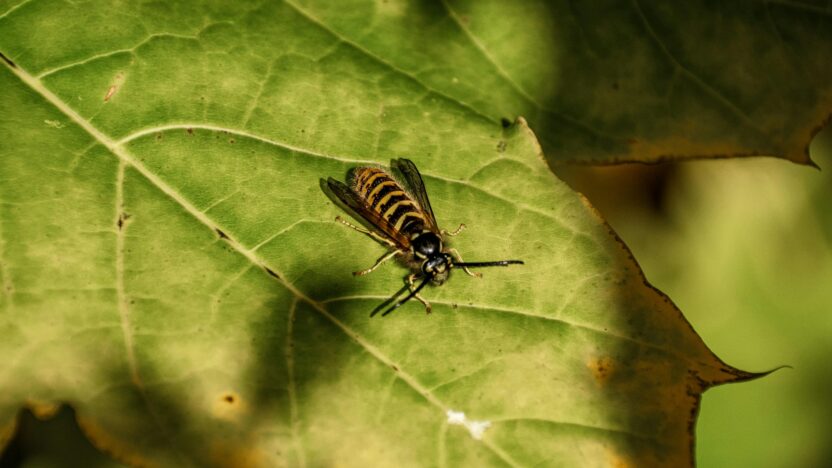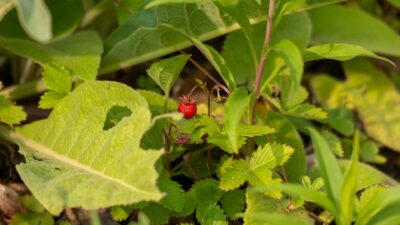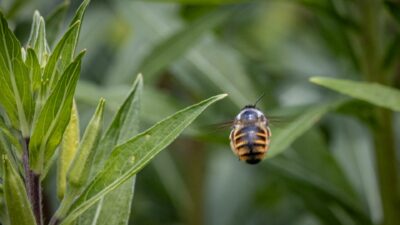Pests can be a challenge for any gardener, but in an organic garden, keeping them at bay without chemicals is key. Eco-friendly pest control protects your plants, supports the environment, and ensures your produce is safe to eat. By using natural methods, you can create a balanced ecosystem where plants thrive and pests are managed sustainably. This guide shares practical, chemical-free ways to keep pests out of your organic garden. For more organic gardening tips, visit For Organic Life.
Understanding Common Garden Pests
Knowing which pests you’re dealing with helps you choose the right control methods. Some common garden pests include:
- Aphids: Tiny insects that suck plant sap, causing curled leaves and stunted growth.
- Slugs and Snails: These munch on leaves, especially in damp conditions, leaving holes and slime trails.
- Caterpillars: Larvae of moths or butterflies that chew through leaves and stems.
- Whiteflies: Small, white insects that weaken plants by feeding on their juices.
Each pest affects plants differently, so inspect your garden regularly. Look under leaves, check stems, and note any unusual damage. Identifying pests early allows you to act before infestations spread. For example, aphids often cluster on new growth, while slugs hide in moist, shady spots during the day.
Using Companion Plants to Repel Pests
Companion planting is a natural way to deter pests by growing certain plants together. Some plants release scents or chemicals that pests dislike, protecting nearby crops. Here are some effective companion plants:
- Marigolds: Their strong smell repels aphids, nematodes, and whiteflies. Plant them near tomatoes or peppers.
- Garlic: Its pungent odor keeps away pests like aphids and spider mites. Grow it near roses or lettuce.
- Nasturtiums: These attract aphids away from your crops, acting as a trap plant. Place them near beans or cucumbers.
- Mint: Its aroma deters ants and cabbage moths but grows invasively, so keep it in pots.
When planning your garden, mix companion plants with your crops to create a natural barrier. For example, a row of marigolds around your vegetable bed can reduce pest pressure. Companion planting not only controls pests but also adds beauty and diversity to your garden.
Making Homemade Organic Pest Sprays
Homemade pest sprays are affordable, safe, and effective when used correctly. They work by repelling or killing pests without harming plants or beneficial insects. Here are two easy recipes:
- Neem Oil Spray: Mix 1 teaspoon of organic neem oil, 1/2 teaspoon of mild dish soap, and 1 quart of water in a spray bottle. Shake well and apply to affected plants in the evening to avoid burning leaves. Neem oil repels aphids, whiteflies, and caterpillars.
- Garlic Spray: Blend 2 garlic bulbs with 1 quart of water, strain, and add 1/2 teaspoon of dish soap. Spray on plants to deter aphids and beetles. Reapply after rain.
Test sprays on a small plant area first to ensure no damage. Apply in the early morning or late evening to avoid harming pollinators like bees. Store unused sprays in a cool, dark place for up to a week. These sprays are a great addition to your organic pest control toolkit.
Encouraging Beneficial Insects
Not all insects are pests—some are your garden’s allies. Beneficial insects prey on harmful pests, keeping their populations in check. Here are a few to welcome:
- Ladybugs: They eat aphids, mites, and whiteflies. A single ladybug can consume thousands of aphids in its lifetime.
- Lacewings: Their larvae feed on aphids, caterpillars, and mealybugs.
- Hoverflies: Their larvae eat aphids, and adults pollinate plants.
To attract these helpers, grow plants they love, like dill, fennel, or yarrow. Avoid synthetic pesticides, as they kill beneficial insects too. You can also buy ladybugs or lacewings from garden suppliers, but creating a welcoming habitat ensures they stay. Provide water sources, like a shallow dish with pebbles, and shelter, like small piles of leaves. Beneficial insects are nature’s pest control team, so make your garden their home.
Maintaining Your Garden to Prevent Infestations
Good garden care is the best defense against pests. A healthy garden is less attractive to pests and better equipped to recover from damage. Here are some maintenance tips:
- Remove Debris: Clear dead leaves, fallen fruit, and weeds, as they provide hiding spots for pests like slugs and beetles.
- Water Wisely: Water in the morning to keep foliage dry, reducing conditions for slugs and fungal pests.
- Prune Regularly: Trim overcrowded branches to improve air circulation and reduce pest-friendly environments.
- Inspect Often: Check plants weekly for early signs of pests, like sticky leaves or chewed edges, and act quickly.
Healthy plants are more pest-resistant, so enrich your soil with organic compost and mulch to retain moisture. Rotate crops each season to prevent pest buildup. A well-maintained garden is less likely to face severe infestations, saving you time and effort.
Building a Pest-Free Organic Garden
Keeping pests out of your organic garden is about working with nature. By understanding pests, using companion plants, making organic sprays, attracting beneficial insects, and maintaining your garden, you can grow healthy crops sustainably. Experiment with these methods to find what works best for your space. For more eco-friendly gardening ideas, explore For Organic Life. With patience and care, your garden will thrive pest-free, providing fresh, organic produce all season long.




